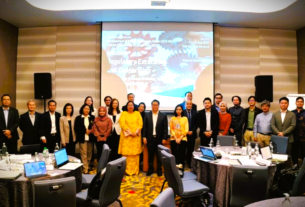The U.S. economy is teetering on the brink of a recession, as recent data and expert analyses indicate escalating risks driven by aggressive trade policies and mounting policy uncertainties. Economists from leading institutions have raised alarms over the potential for a significant economic downturn in the latter half of 2025.
Key Economic Indicators Signal Trouble
Recent reports reveal that the U.S. Gross Domestic Product (GDP) contracted by 0.3% in the first quarter of 2025, marking the first decline since early 2022. This unexpected downturn is largely attributed to a surge in imports ahead of newly imposed tariffs, resulting in a record trade deficit that significantly dragged down GDP.
Consumer confidence has also taken a hit, with The Conference Board’s Consumer Confidence Index® falling by 7.9 points to 86.0 in April, the lowest level since October 2011. The Expectations Index, which gauges consumers’ short-term outlook, dropped to 54.4, well below the threshold of 80 that often signals an impending recession.
Expert Forecasts Highlight Recession Risks
Economists from Moody’s Analytics, JPMorgan, and Apollo Global Management have expressed heightened concerns over the U.S. economic trajectory. Mark Zandi of Moody’s Analytics estimates a greater than 50% chance of a global recession, warning that prolonged trade tensions could hurt sectors like manufacturing and agriculture. JPMorgan has raised its recession probability from 40% to 60%, projecting potential GDP contractions in the second half of 2025 and a spike in unemployment to 5.3%. Torsten Sløk of Apollo Global Management estimates a 90% chance of a U.S. recession, citing the damaging effects on small businesses, which may lead to widespread supply disruptions, business bankruptcies, and job losses.
Tariffs and Trade Policies Under Scrutiny
The Trump administration’s recent implementation of a 145% tariff on Chinese goods has sparked significant debate. While the White House argues that these measures aim to promote domestic manufacturing and lessen dependency on imports, critics warn of rising consumer prices and potential economic strain. The toy industry, heavily reliant on Chinese manufacturing, fears significant profit losses and layoffs, especially with the holiday season approaching.
President Trump’s remarks suggesting that American children might receive fewer and more expensive toys this Christmas due to the tariffs have drawn comparisons to Marie Antoinette’s infamous “let them eat cake” statement, highlighting perceived indifference to the economic strain on ordinary families. Public sentiment is shifting, with consumer confidence falling and inflation expectations rising. Trump’s approval ratings have declined, particularly concerning his handling of the economy.
Calls for Strategic Policy Adjustments
Analysts emphasize the need for the administration to swiftly finalize trade deals and consider tax cuts to mitigate the economic risks stemming from ongoing tariffs. Delaying acceptance of trade agreements could worsen political and economic conditions, potentially leading to further GDP contraction and jeopardizing broader legislative agendas.
As the U.S. navigates these economic challenges, the coming months will be critical in determining the effectiveness of current policies and the resilience of the economy in the face of global uncertainties.




